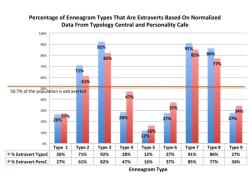What is a sociopath self test?
It's important to note that self-assessment tests for sociopathy, also known as antisocial personality disorder (ASPD), should not be considered a reliable or definitive means of diagnosing a mental health condition. Diagnosing personality disorders, including sociopathy, requires a comprehensive evaluation by a qualified mental health professional, such as a psychiatrist or psychologist. Self-tests found online may lack the validity and reliability necessary for an accurate assessment.
That being said, some online quizzes or questionnaires claim to assess traits associated with sociopathy. These self-assessment tests typically include a series of questions related to behavior, attitudes, and interpersonal relationships. Users are asked to reflect on their experiences and answer the questions to the best of their ability.
It's crucial to approach such self-assessment tools with caution for several reasons:
Lack of Professional Evaluation: Online tests cannot replace a thorough evaluation by a qualified mental health professional who can consider a range of factors and conduct a clinical assessment.
Subjectivity: Self-assessment tools rely on individuals' subjective perceptions of their own behavior. People may not always have accurate self-awareness, and their self-perceptions may be influenced by various factors.
Limited Scope: Online tests often focus on specific behaviors or traits associated with sociopathy but may not capture the complexity and nuances of the disorder. Diagnosis requires a comprehensive understanding of the individual's history, relationships, and overall functioning.
Ethical Considerations: Personality disorders, including sociopathy, are serious mental health conditions. Attempting to self-diagnose or diagnose others without proper training can have ethical implications and may contribute to misunderstanding and stigmatization.
If you suspect that you or someone you know may have symptoms of a personality disorder or sociopathy, it is strongly recommended to seek professional help. A mental health professional can conduct a thorough assessment, consider the broader context, and provide appropriate guidance and treatment options.
In summary, self-assessment tests for sociopathy found online are not a substitute for professional evaluation and should be approached with caution. If you have concerns about your mental health or the mental health of someone else, it is advisable to consult with a qualified mental health professional for an accurate diagnosis and appropriate support.
What are the components or questions typically found in a sociopath self-assessment test?
There is no standardized sociopath self-assessment test, but some common components or questions that may be found in such a test include:
Interpersonal:
- Do you have difficulty forming or maintaining close relationships?
- Do you lack empathy for others?
- Do you manipulate or exploit others to get what you want?
- Do you lack a sense of guilt or remorse?
Emotional:
- Do you have difficulty controlling your anger or temper?
- Do you have a callous or unemotional demeanor?
- Do you engage in risky or impulsive behaviors?
- Do you have a high tolerance for stress?
Behavioral:
- Do you have a history of antisocial behavior, such as delinquency or criminality?
- Do you frequently lie or deceive others?
- Do you have a reckless disregard for the safety of yourself or others?
- Do you have a pattern of irresponsability, such as failing to meet work or financial obligations?
It is important to note that these are just a few examples, and the specific components or questions of a sociopath self-assessment test may vary depending on the source. Additionally, it is important to remember that self-assessment tests are not diagnostic tools and should not be used as a substitute for a professional evaluation. If you are concerned that you or someone you know may have sociopathic tendencies, it is important to seek professional help.











